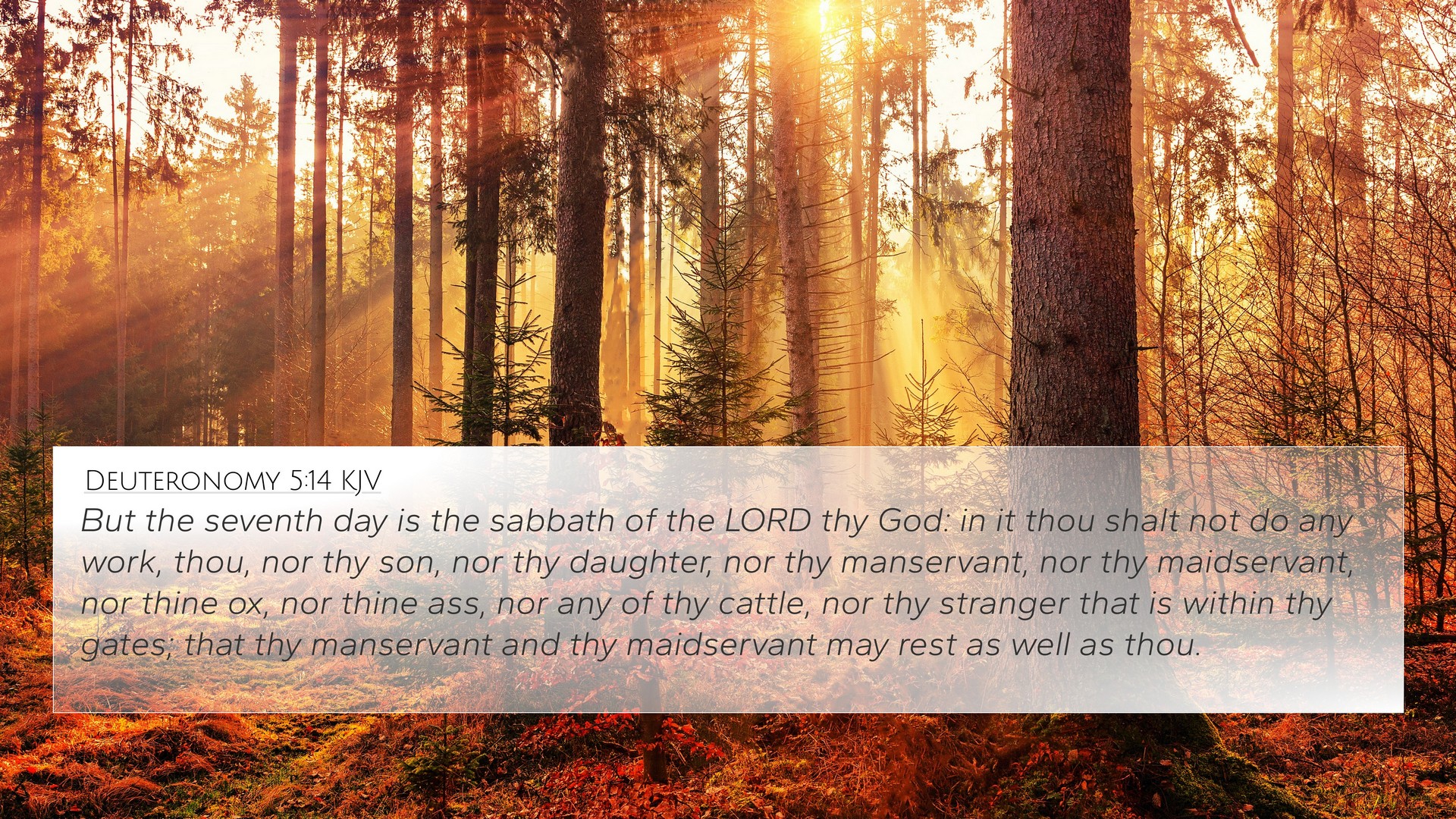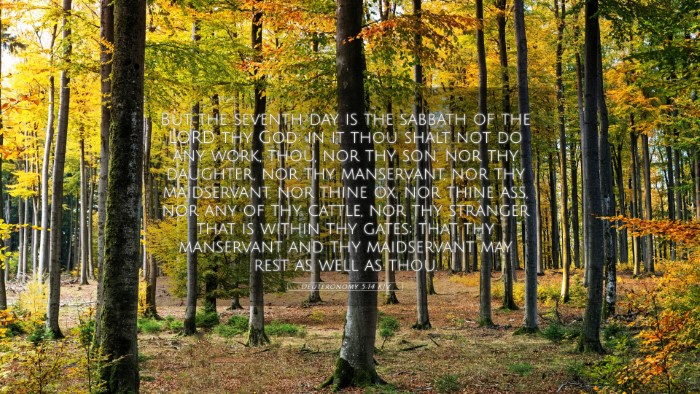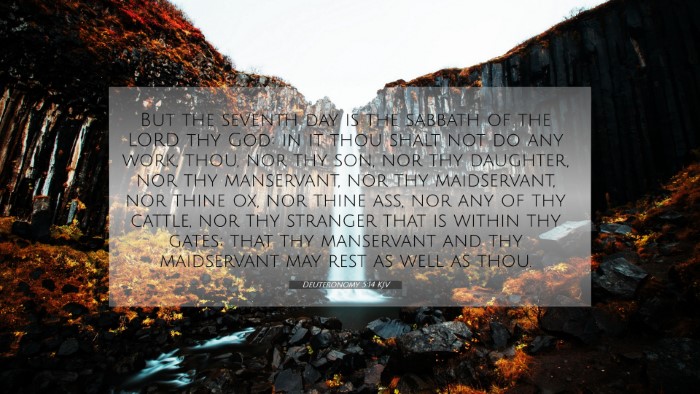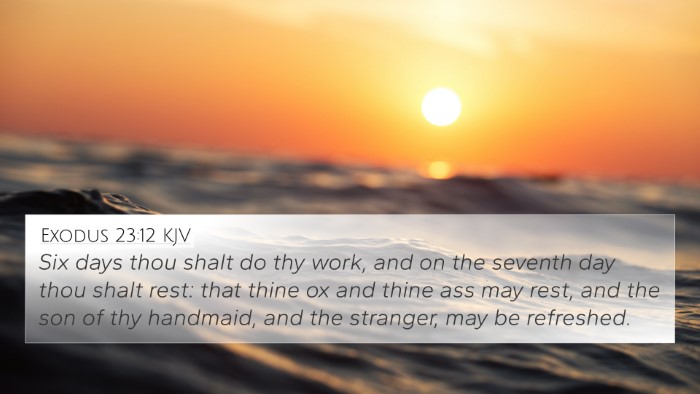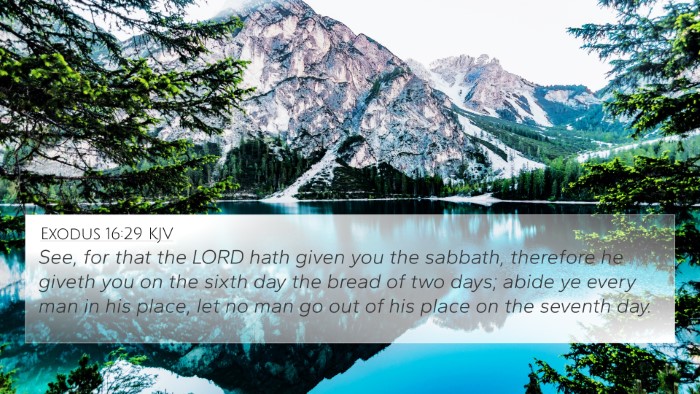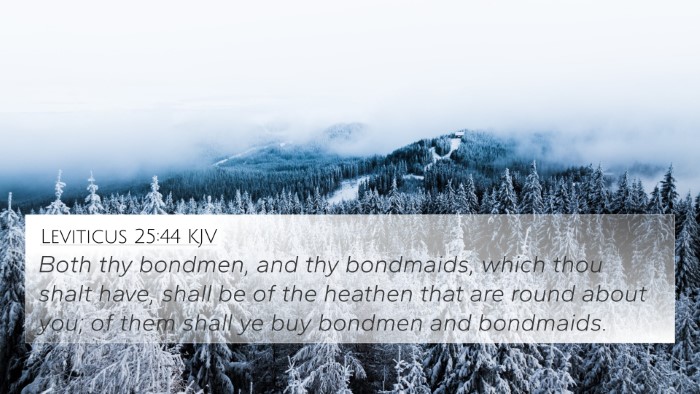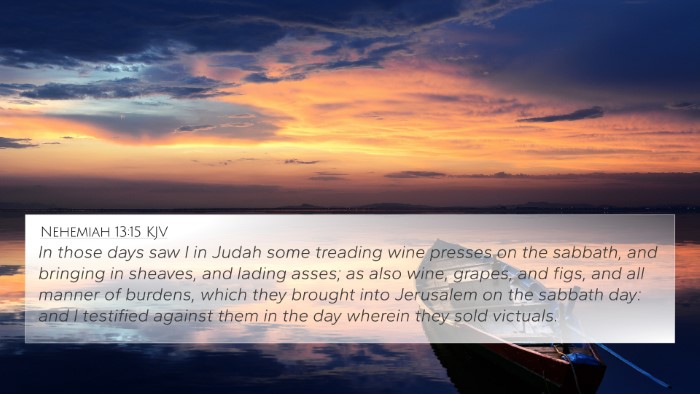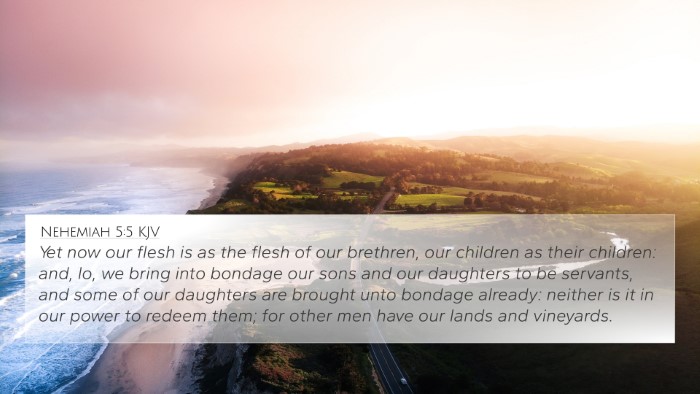Understanding Deuteronomy 5:14
Deuteronomy 5:14 states:
"But the seventh day is the sabbath of the LORD thy God: in it thou shalt not do any work, thou, nor thy son, nor thy daughter, thy manservant, nor thy maidservant, nor thine ox, nor thine ass, nor any of thy cattle, nor thy stranger that is within thy gates; that thy manservant and thy maidservant may rest as well as thou."
Meaning and Insights
This verse underscores the significance of the Sabbath, a day of rest commanded by God, which serves several vital purposes:
-
Divine Rest:
It reflects the pattern established during Creation when God rested on the seventh day, highlighting the importance of rest as part of divine order (Genesis 2:2-3).
-
Social Equity:
By prohibiting work, the Sabbath aims to create an environment where not just the family, but also servants and animals receive rest, promoting social equity.
-
Spiritual Reflection:
The Sabbath becomes a time for spiritual renewal and reflection, enabling individuals to reconnect with God and their community.
-
Sign of Covenant:
It serves as a reminder of God's covenant with His people, distinguishing them from other nations and reaffirming their identity as His chosen.
Commentary Insights
Insights from various public domain commentaries, like those by Matthew Henry, Albert Barnes, and Adam Clarke, unveil further dimensions of this verse.
Matthew Henry's Commentary
Henry emphasizes that the Sabbath is not merely a time of physical rest but also a spiritual necessity. He notes that its observance encourages a reflection on God's grace and our dependence on Him. He also stresses that all should participate in its observance, fostering a unified worship experience.
Albert Barnes' Notes
Barnes indicates the broader implications of the Sabbath rest, linking it directly to the societal values of compassion and equal treatment, where both employer and employee share in the day of rest. He also connects this with the idea of compassion that God desires from His people.
Adam Clarke's Commentary
Clarke highlights the significance of remembering the Sabbath as a day dedicated to the Lord. He notes that it is a time for prayer and worship, reinforcing the obligation of the people to honor God and maintain their relationship with Him during this sacred time.
Cross-References for Deuteronomy 5:14
This verse correlates with several other scriptures that illuminate its meaning:
- Exodus 20:8-11 - The command to keep the Sabbath day holy.
- Genesis 2:2-3 - God's rest on the seventh day after Creation.
- Isaiah 58:13-14 - The blessings of observing the Sabbath.
- Mark 2:27 - Jesus states that the Sabbath was made for man, indicating its purpose for human benefit.
- Hebrews 4:9-10 - The concept of a Sabbath rest remaining for God's people.
- Luke 13:15-16 - Jesus’ teaching on the importance of mercy on the Sabbath.
- Exodus 31:13-17 - The Sabbath as a sign between God and Israel.
Connecting Themes and Insights
The thematic connections found in Deuteronomy 5:14 and related scriptures reveal a profound biblical principle:
-
Rest as a Divine Command:
God requires rest not only for our well-being but also to honor Him as Creator and sustainer.
-
Community and Care:
The Sabbath is designed to foster community and care among all, emphasizing that every segment of society, regardless of status, deserves rest and dignity.
-
Spiritual Renewal:
It is a period for spiritual renewal, reminding God’s children to reconnect with Him and nurture their relationship with the divine.
Tools for Bible Cross-Referencing
Understanding connections between Bible verses can enhance one's study and appreciation of scripture. Here are some useful resources:
- Bible Concordance - A tool to locate themes, words, and verses related to a specific idea.
- Cross-Reference Bible Study - Engages deeper into the biblical text through related verses.
- Bible Reference Resources - Guides to facilitate easier navigation through themes and scriptures.
- Comprehensive Bible Cross-Reference Materials - Collections providing in-depth looks at biblical cross-references.
Conclusion
The Sabbath's message in Deuteronomy 5:14 transcends mere religious observance; it is a divine gift intended for physical, emotional, and spiritual renewal. By understanding its implications through cross-referencing related scriptures, believers can gain insights into God’s intention for humanity and their relationships with Him and one another.
